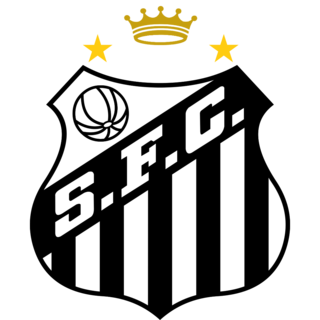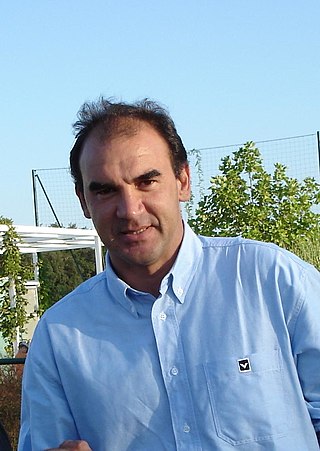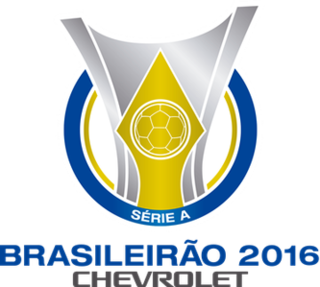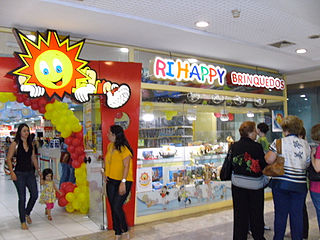
Santos Futebol Clube is a Brazilian sports club based in Vila Belmiro, a bairro in the city of Santos. It plays in the Campeonato Paulista, the state of São Paulo's premier state league, as well as the Campeonato Brasileiro Série B, the second tier of the Brazilian football league system, after getting relegated in the 2023 season for the first time in the club's history.

São Paulo Futebol Clube is a professional football club in the Morumbi district of São Paulo, Brazil. It plays in Campeonato Paulista, São Paulo's premier state league and Campeonato Brasileiro Série A, the top tier of Brazilian football. Despite being primarily a football club, São Paulo competes in a wide variety of sports. Its home ground is the multipurpose 72,039-seater MorumBIS Stadium, the biggest private-owned field in Brazil. São Paulo is Brazil’s biggest worldwide champion and also one of the only two clubs that have never been relegated from the top division, the other being Flamengo.

Parker Brothers was an American toy and game manufacturer which in 1991 became a brand of Hasbro. More than 1,800 games were published under the Parker Brothers name since 1883. Among its products were Monopoly, Clue, Sorry!, Risk, Trivial Pursuit, Ouija, Aggravation, Bop It, Scrabble, and Probe. The trade name became defunct with former products being marketed under the "Hasbro Gaming" label with the logo shown on Monopoly games.

Simon is an electronic game of short-term memory skill invented by Ralph H. Baer and Howard J. Morrison, working for toy design firm Marvin Glass and Associates, with software programming by Lenny Cope. The device creates a series of tones and lights and requires a user to repeat the sequence. If the user succeeds, the series becomes progressively longer and more complex. Once the user fails or the time limit runs out, the game is over. The original version was manufactured and distributed by Milton Bradley and later by Hasbro after it took over Milton Bradley. Much of the assembly language code was written by Charles Kapps, who taught computer science at Temple University and also wrote one of the first books on the theory of computer programming. Simon was launched in 1978 at Studio 54 in New York City and was an immediate success, becoming a pop culture symbol of the 1970s and 1980s.

Garça is a town located in the west-central part of the state of São Paulo, Brazil. The population is 44,409 in an area of 556 km2.

Estrela is a toy manufacturer in Brazil. The company was founded in São Paulo in 1937, when it started producing dolls and wooden toy cars. In 1944 it became a publicly traded corporation. As of 2005, Carlos Tilkian is CEO of the company.

Estádio Urbano Caldeira, also known as Vila Belmiro, is an association football stadium located in the Vila Belmiro neighborhood of Santos, São Paulo, and the home of Santos Futebol Clube.
Ricardo Roberto Barreto da Rocha is a Brazilian retired footballer who played as a central defender.
Tec Toy S.A., trading as Tectoy since late 2007, is a Brazilian toy and electronics company headquartered in São Paulo. It is best known for producing, publishing, and distributing Sega consoles and video games in Brazil. The company was founded by Daniel Dazcal, Leo Kryss, and Abe Kryss in 1987 because Dazcal saw an opportunity to develop a market for electronic toys and video games, product categories that competitors did not sell in Brazil at the time. The company stock is traded on the Bovespa.

Ricardo Gomes Raymundo is a Brazilian retired professional footballer and manager. As a player, he played as a central defender, in a 14-year professional career, for Fluminense, Benfica (four) and Paris Saint-Germain (four). Gomes played for Brazil during the 1980s and 1990s, representing the nation at the 1990 World Cup and in two Copa América tournaments.
Grow or GROW may refer to:

Paulo Roberto Falcão, or simply Falcão, is a Brazilian former footballer and football manager. He is universally considered one of the greatest Brazilian players of all time and one of the greatest defensive midfielders in football history, and one of the best players in the world in his position at his peak in the 1980s.

Vídeo Brinquedo is a Brazilian animation studio, located in São Paulo, known for producing animated films widely viewed as cheap mockbusters of comparable, more successful films from studios such as Walt Disney Animation Studios, Pixar Animation Studios, DreamWorks Animation, 20th Century Animation and Blue Sky Studios. The company was founded in 1995 as a Brazilian subsidiary of American distributor Spot Films, to distribute animation with the intention of distribution in its home market of Brazil, then seemingly split up and became Vídeo Brinquedo in 2004; later on, in 2006, they expanded to North America with the falling costs of DVD duplication and packaging, and easier access to language translation services. Most of Vídeo Brinquedo's films are still available on DVD and streaming services, though it is unclear who the current owners of the studio's output are.
José Gildásio Pereira de Matos, commonly known by the nickname Gil Baiano, is a retired professional association football right back, who played for several Campeonato Brasileiro Série A clubs, and for the Brazil national team.
Playtronic Industrial Ltda. is a Brazilian video game company. Its original iteration was also a toy manufacturer and was based in Manaus, Brazil, and was a joint venture between companies Gradiente Industrial S.A. and Manufatura de Brinquedos Estrela S.A.. The company was founded on March 15, 1993, by the CEOs Eugênio Staub, from Estrela, and Mario Adler, from Gradiente. The initial business was assembling Nintendo products outside Japan for the Brazilian market, competing directly with Tec Toy, the Sega representative in the country. Since 2016, Playtronic has been developing games for Android and Xbox.

Google Developer Day events were one-day web developer-focused gatherings around the world held annually by Google. They include seminars and codelabs focused on building of web, mobile, and enterprise applications with Google and open web technologies such as Android, HTML5, Chrome, App Engine, Google Web Toolkit and give participants an excellent chance to learn about Google developer products as well as meet the engineers who work on them.

Brasil Game Show is a yearly Brazilian video game convention organized by business executive Marcelo Tavares, that is currently held in São Paulo and is the largest gaming convention in Latin America and one of the largest in the world. The first edition of the event was held on June 21, 2009 in Rio de Janeiro, with an attendance of 4,000. Since moving from Rio de Janeiro to São Paulo, the event has been held at the Expo Center Norte, in the Vila Guilherme district of the city.

The 2016 Campeonato Brasileiro Série A was the 60th season of the Série A, the top level of professional football in Brazil, and the 13th edition in a double round-robin since its establishment in 2003. The season began on 15 May 2016 and ended on 11 December 2016. Fixtures for the 2016 season were announced on 25 April 2016. Palmeiras won the title, their ninth overall.

Monica Toy is a Brazilian franchise and 2D animated series based on Monica's Gang comic books, and also a spin-off of the animated cartoon series of the same name. The series features the characters drawn in a chibi-like art style. The franchise debuted on 2013 in partnership with Mauricio de Sousa and the company Tok & Stok for the sale of products based on the characters, with a cartoon premiering on the official YouTube channel on May 23 of the same year. The cartoon also debuted on Cartoon Network in Brazil after a few months.

Ri Happy Brinquedos, stylised as RI HAPPY, is the largest toy retailer in Brazil.















